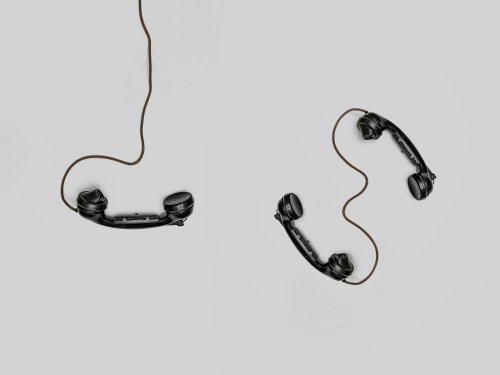Signs He Is Jealous and How to Address Them For a Healthy Relationship
Recognize the signs he is jealous and learn how to address his behavior for a stronger, healthier relationship together.

Jealousy shows up in relationships more often than most people admit. Sometimes it's obvious, like when he makes a comment about the guy who smiled at you at the coffee shop. Other times, it's subtle, hiding beneath questions that seem casual or mood shifts that feel confusing.
Understanding the signs he is jealous can help you figure out what's really happening in your relationship and whether his feelings come from insecurity, past experiences, or genuine concern. More importantly, recognizing these patterns gives you the chance to address them before they create distance between you both.

What Jealousy Really Means in a Relationship
Jealousy isn't always a red flag. At its core, it's an emotional response that signals someone feels threatened or fears losing something valuable. When your partner shows signs he is jealous, it usually means he cares about the relationship but worries about competition or losing your attention. The key difference lies in how he handles those feelings.
Healthy jealousy might surface occasionally and gets communicated openly. Unhealthy jealousy becomes controlling, constant, and refuses to acknowledge boundaries. Understanding this distinction matters because it determines whether you're dealing with normal human emotions or something that needs serious intervention.
12 Signs He Is Jealous
1. He Asks More Questions Than Usual
Conversations that used to flow naturally now feel like interviews. He wants details about where you went, who you saw, and what you talked about. While interest in your day shows care, excessive questioning crosses into interrogation territory. Pay attention to whether he accepts your answers or keeps digging for more information, as this pattern reveals underlying insecurity.

2. His Mood Changes When You Mention Other Men
Notice how his energy shifts when you bring up a male coworker or friend. He might get quiet, change the subject quickly, or make dismissive comments about the person you mentioned. These reactions happen because hearing about other men triggers his fear of being replaced, even when the context is completely innocent.
3. He Shows Up Unexpectedly
Surprise visits sound romantic until they become a pattern of checking up on you. When he drops by your workplace without warning or shows up at events he previously had no interest in attending, it's less about wanting to see you and more about monitoring who else is around you. This behavior demonstrates one of the clearer signs he is jealous and struggling with trust.
4. He Criticizes Your Friends
Suddenly, your friends aren't good enough. He finds faults in people who have been part of your life long before he arrived. This criticism often targets those he perceives as threats, particularly male friends or anyone who encourages your independence. Jealousy manifests as attempts to isolate you by creating negative associations with the people you care about.
5. He Monitors Your Social Media Activity
Likes, comments, and follows become points of tension. He notices when someone new interacts with your posts or questions why you haven't posted photos of the two of you recently. Some partners even go through your messages or ask to see your phone regularly. This digital surveillance reveals deep insecurity and a need for constant reassurance about your commitment.

6. He Tries to Make You Jealous in Return
When he feels jealous, he might talk about other women showing interest in him or emphasize how much attention he gets from the opposite sex. This tactic attempts to level the playing field in his mind, making you feel the same discomfort he experiences. Rather than addressing his feelings directly, he creates competition and tests your reactions.
7. He Needs Constant Reassurance
Questions about your feelings become repetitive. He asks if you still love him, whether you find other men attractive, or if you're happy in the relationship. While occasional check-ins are normal, constant need for validation signals that no amount of reassurance feels like enough. The signs he is jealous often include this cycle of seeking comfort that never quite satisfies his worries.
8. He Gets Possessive About Your Time
Plans with friends or family trigger complaints about not spending enough time together. He makes you feel guilty for maintaining other relationships or pursuing individual interests. This possessiveness disguises itself as wanting closeness but actually stems from fear that time away from him gives others opportunities to win your attention.
9. He Compares Himself to Other Men
Whether it's physical appearance, career success, or personality traits, he measures himself against men in your life or even celebrities you mention. These comparisons reveal his internal competition and worry that he doesn't measure up. Jealousy feeds on perceived inadequacy, making him hyperaware of any man who might seem superior in some way.
10. He Remembers Details You Don't
Mention a coworker's name once in passing three weeks ago, and he'll bring it up now. This intense focus on potential threats means he's cataloging information about anyone who might pose a competition. While remembering what you say seems thoughtful, this specific type of attention centers on tracking perceived rivals rather than genuinely listening to your experiences.
11. He Wants to Know Your Passwords
Requests for phone passwords or social media login information get framed as trust-building or relationship transparency. However, the need to access your private communications indicates a lack of trust, not its foundation. This invasion of privacy represents one of the more concerning signs he is jealous because it crosses boundaries under the guise of partnership.
12. He Withdraws After Social Events
After parties or gatherings where you interacted with other people, he becomes distant or moody. He might claim nothing's wrong while clearly being upset, or he'll pick small fights about unrelated issues. This withdrawal punishes you for socializing while allowing him to avoid directly confronting his jealous feelings.

How to Address Jealousy in Your Relationship
Recognizing these patterns is just the first step. Addressing jealousy requires honest communication and clear boundaries. Start by naming what you've noticed without accusations. Instead of saying "You're too jealous," try "I've noticed you seem uncomfortable when I mention my coworker, and I'd like to understand why." This approach opens dialogue rather than triggering defensiveness.
Set firm boundaries about acceptable behavior. Checking your phone without permission, showing up unannounced to monitor you, or demanding you cut off friendships aren't negotiable in healthy relationships. Make it clear which behaviors you won't tolerate while remaining open to working through the underlying emotions together.
Encourage him to explore where his jealousy originates. Past betrayals, childhood experiences, or attachment issues often fuel present insecurity. Professional counseling can provide tools for managing these feelings constructively. Remember that while you can support him, you're not responsible for fixing his jealousy, and it's not your job to constantly prove your loyalty.
Consider whether the jealousy improves with communication or escalates despite your efforts. Healthy partners recognize their jealous reactions and work to manage them. Unhealthy partners blame you for causing their jealousy and expect you to change your behavior to accommodate their insecurity. This distinction determines whether the relationship can move forward or whether you need to protect yourself by moving on.
When Jealousy Becomes a Deal Breaker
Sometimes jealousy crosses from manageable insecurity into dangerous territory. Knowing when to walk away protects your mental health and physical safety. If his jealousy leads to isolating you from friends and family, that's emotional abuse disguised as love. When he uses jealousy to justify tracking your location, controlling what you wear, or deciding who you can talk to, the relationship has become unhealthy.
Violence or threats represent absolute deal breakers. Jealousy that escalates to breaking objects, blocking doorways during arguments, or any form of physical intimidation requires immediate action. These behaviors don't improve with reassurance or patience. They worsen over time as he tests how much control you'll accept.
Financial control often accompanies extreme jealousy. He might insist on managing all the money so you can't leave, or he'll sabotage your job to keep you dependent. Jealousy becomes the excuse for making you vulnerable and trapped. Professional help matters in these situations, but your safety comes first. Reach out to trusted friends, family, or domestic violence resources if you recognize these patterns in your relationship.

Pay attention to how you feel daily. Constant anxiety about triggering his jealousy, walking on eggshells to avoid upsetting him, or losing yourself to keep the peace all signal that this jealousy has become toxic. You deserve a partnership where you feel secure, trusted, and free to be yourself without constant justification or explanation.
Conclusion
Navigating jealousy takes courage from both people in the relationship. When you recognize the signs he is jealous, you're not just identifying a problem but opening the door to deeper understanding and growth. Some jealousy comes from caring intensely about what you've built together, and that version can evolve into stronger trust when both partners commit to the work. The real question becomes whether he's willing to examine his feelings honestly and take ownership of managing them in healthier ways.
Pay attention to how he responds when you bring up these concerns. Does he get defensive and make excuses, or does he acknowledge the impact of his behavior and show genuine interest in changing? That response tells you everything about whether this relationship can flourish or whether you're fighting a battle that isn't yours to win. Your well-being matters more than preserving a connection that requires you to shrink your world to manage someone else's insecurity.
Trust yourself to know the difference between a partner growing through jealousy and one using it to control you.
Share
What's Your Reaction?
 Like
0
Like
0
 Dislike
0
Dislike
0
 Love
0
Love
0
 Funny
0
Funny
0
 Angry
0
Angry
0
 Sad
0
Sad
0
 Wow
0
Wow
0















